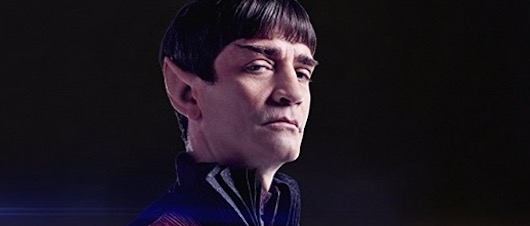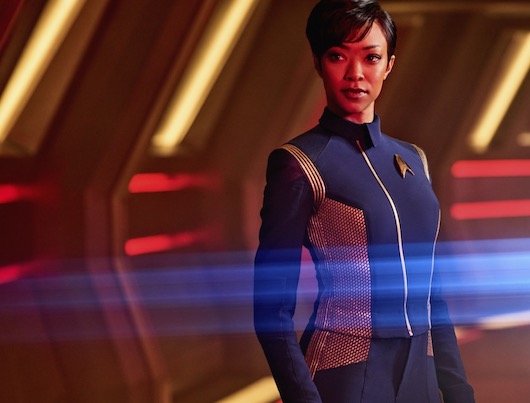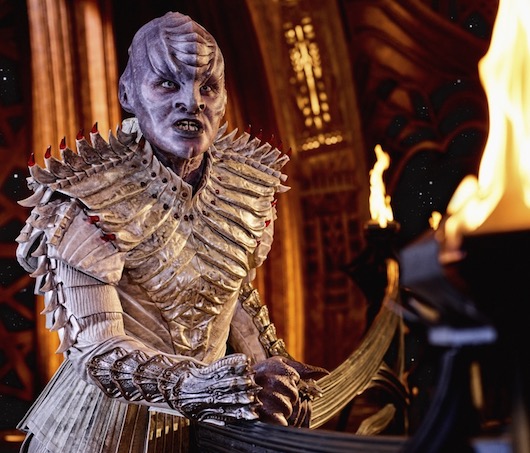 TV
TV In Which We Make The Right Choice After All
 Thursday, October 12, 2017 at 8:00AM
Thursday, October 12, 2017 at 8:00AM 
American Buffalo
by ETHAN PETERSON
Mr. Robot
creator Sam Esmail
USA
 About two-thirds into the third season premiere of Mr. Robot, an elaborate proof that even a revenge fantasy can be made dull through its own generic willpower, Sam Esmail begins laying into Donald Trump. For people like Sam who thrive on words, and the general, reductive meaning they are able to apply to ideas, moments and opinions, the president is impossible to understand.
About two-thirds into the third season premiere of Mr. Robot, an elaborate proof that even a revenge fantasy can be made dull through its own generic willpower, Sam Esmail begins laying into Donald Trump. For people like Sam who thrive on words, and the general, reductive meaning they are able to apply to ideas, moments and opinions, the president is impossible to understand.
To their credit, artists, doctors, lawyers and citizens all educated, have been taught to live and die by their words. For those of this tortured mindset, any other approach could make no sense of their lives. Verbal articulation is how they define themselves and their relationship to others. Well, the president is not great with words, so he does what anyone might do who can’t speak or write very well: he shows how little power speech has.

Eliot (Rami Malek) is a similar creature. When he does speak, a manifesto comes out, but it is not really of his own doing. His truer, more authentic self is beneath the turgid recitation of the ills of society. Beneath this veneer, his shyness tells a more nuanced story. More than anything, what drives him is wanting to be liked and respected. Such personages – I can think of many who share this ultimately useless view – intimately understand what others most want to hear. This, they believe, is the best purpose of speech.
Eliot’s sister Darlene (Carly Chaikin) recoils from all this. When someone starts talking to her, she either responds profanely, runs away, screams, or has a panic attack. At other times, she represses her introverted calling, and dominates others through an otherworldly combination of presence and enthusiasm. Once she feels she has lost her cause, however, she returns to a state of grace.

Eliot’s friend Angela (Portia Doubleday, easily the best actor on the entire show) watched her mother die from the bad actions of a large corporation. She allows this singular tragedy to corrupt every other moment of her life. Angela pushes love away at every intersection, and when she cares for those like Eliot, people who cannot care for themselves, she wields a silent combination of pity and hate. I said Mr. Robot was dull, and it is, but the men and women standing in front of computer terminals throughout the show are all fairly alive.

Quite possibly a word, or a series of words, might serve as a guide to some future act. But the words would fairly fade with time. Irving (Bobby Cannavale) strongly believes words mean something very important. When he is promised a free milkshake after his tenth hamburger, he is intent on collecting. In short, he is like you and all your innocent, naive friends. They believe it is right to judge people by what they say. (“Action talks,” someone said, “and bullshit walks.”). Philanthropy, someone without a soul said, is the way that brands will win. We have prized speech over content, and this is actually how Rome fell, if I’m not mistaken.
Mr. Robot suffers from a similar fate. Nothing much really goes on in it. Every once in awhile, someone will suddenly and unexpectedly receive exactly what they deserve.
Ethan Peterson is the reviews editor of This Recording.

 ethan peterson,
ethan peterson,  mr. robot,
mr. robot,  rami malek
rami malek 










































